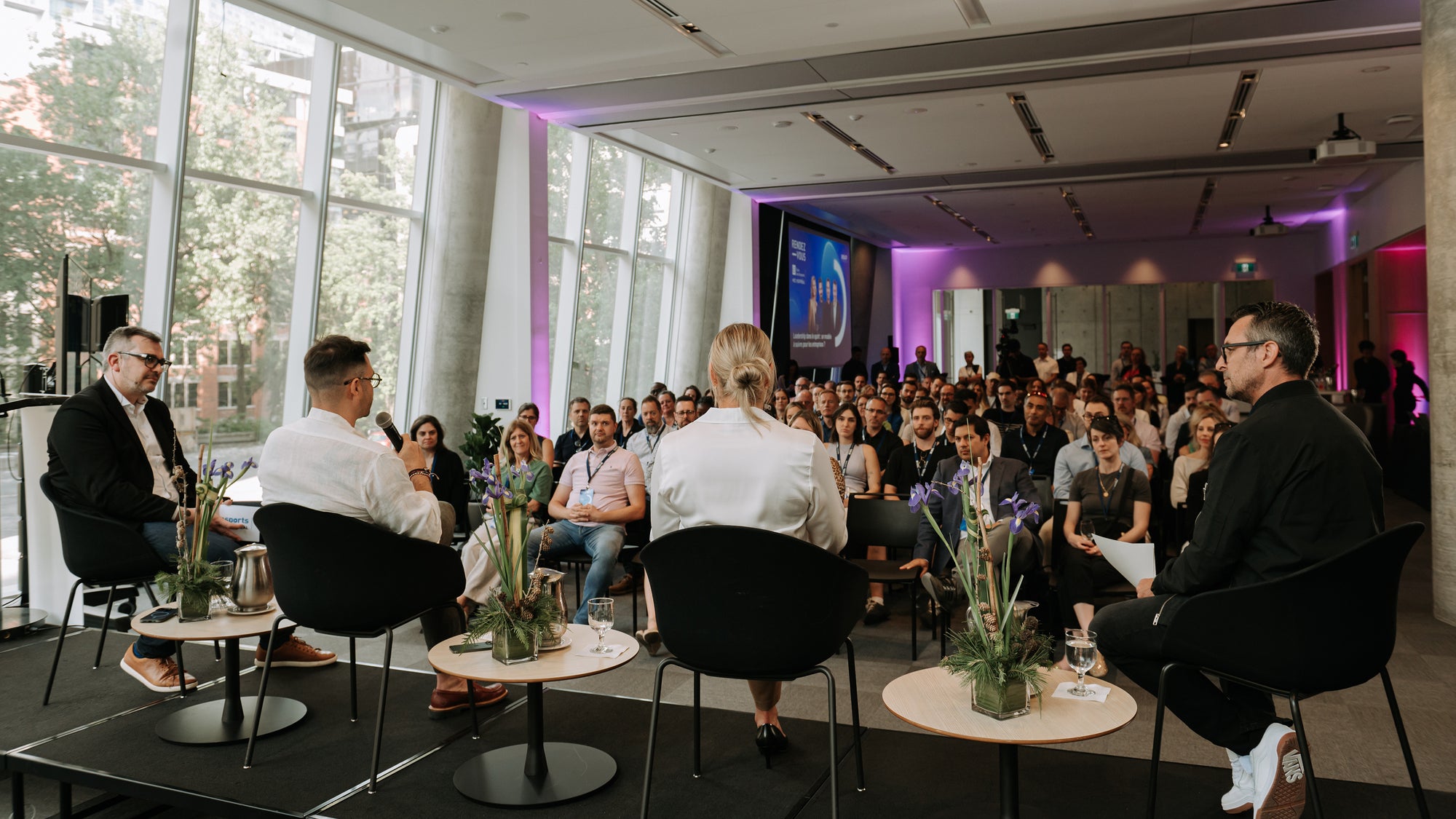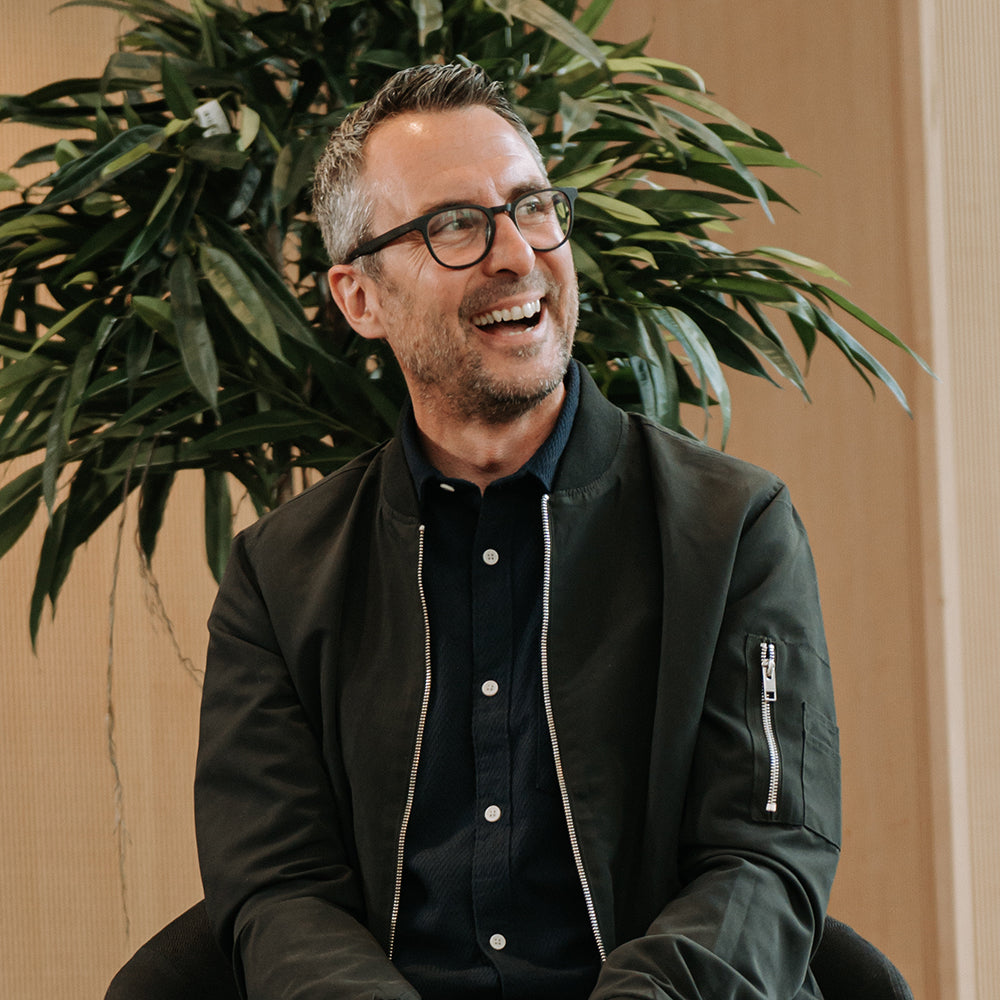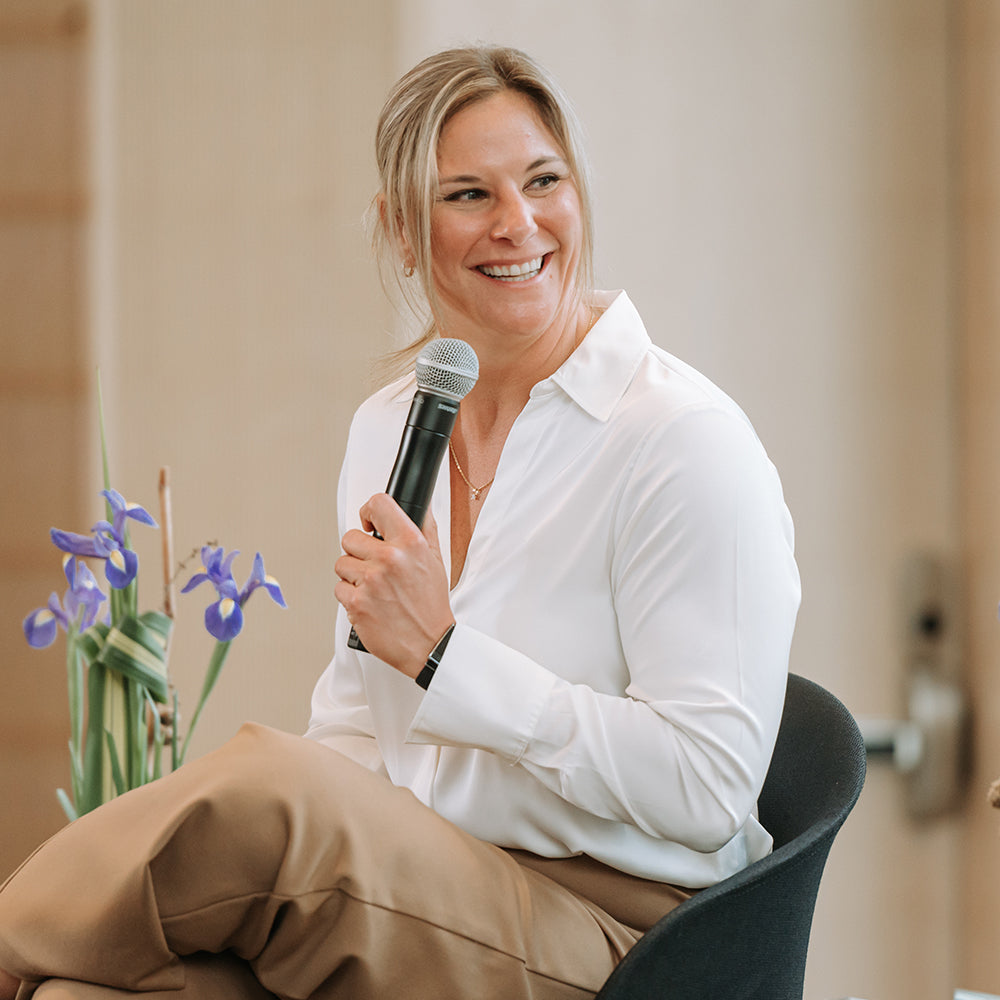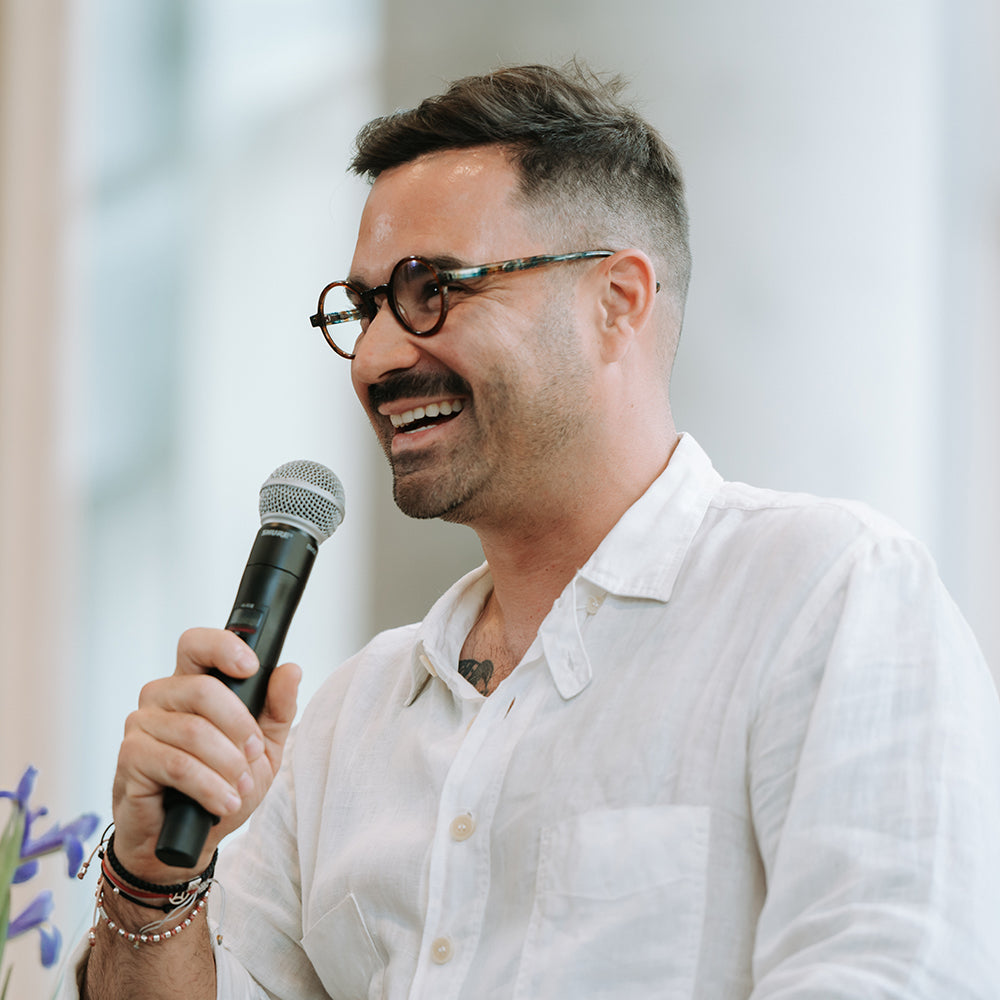Leadership Lessons from the World of Sport

June 19, 2024
What can today’s business professionals learn from elite athletes and coaches when it comes to leadership? Executive Education HEC·Montréal hosted a talk on this very topic on June 4, with three top Quebec sports figures: world champion boxer Marie-Eve Dicaire, Olympic diving medallist Alexandre Despatie, and Jean-Paul Richard, the freestyle ski coach who led the Dufour-Lapointe sisters to victory at the 2014 Olympic Games.
Read on for a summary of their discussion, moderated by Professor Eric Brunelle from the Department of Management and Director of the HEC Montréal Sport Management Hub.
How much of a parallel can be drawn between the sports and business worlds?
Professor Brunelle kicked off the event by asking each of the guest speakers about how they learned to manage emotions, stress, energy levels and performance as athletes, and to what extent these lessons are applicable to business.
“There are lots of similarities,” said Jean-Paul Richard. Speed is a big thing in both. And everything athletes go through to prepare for the Olympics is very much like what businesses do in their strategic planning. So both groups have quite a lot to share.
Marie-Eve Dicaire said she felt very strongly that her experience as an athlete was excellent training for corporate life. One of the tricks she learned from her sports psychologist was to see things like a GPS, in other words to go into “reroute” mode as soon as something goes off track. “When there’s a traffic jam or roadwork ahead,” she said, “the GPS looks for a new and better way to get you where you want to go” without taking a major detour or depleting too much fuel.
Managing time, workload and performance
Athletes need to regulate their energy levels if they want to be at their best when it really counts. In a corporate setting, it is important to take a similar approach to managing time and effort. Does that mean business leaders should work closely with their teams to control their performance?
“There’s nothing more subjective than the concept of ‘balance,’” said Dicaire. Finding the best pace and intensity to work at, and the optimal time to step back and take a break, all depend on who you are as an individual.
During his athletic career, Alexandre Despatie found he needed weekends off from diving to just be a teenager. “I was criticized for slacking off,” he said. But it was precisely his time away from the pool that let him give his all during his weekday training sessions.
“You can’t constantly be plugging into your back-up battery,” added Dicaire, who admitted to sometimes ignoring the lighter workout weeks her team would schedule into her training program. Every time she did, she’d paid the price. “I’d inevitably get hurt!” Oddly enough, now that she’s retired and doesn’t train as hard as she once did, she’s beating all her old speed and endurance records.
Whenever people used to wonder why Richard would take his athletes as far away as Australia only to hit a handful of pristine slopes at the start of the season instead of maxing out their training while they were there, he was quick to remind them that quality often wins out over quantity.



Failure is the best teacher
In sports and business, as in life, setbacks can be hard to swallow. And for star athletes, who have the eyes of the world on their every move, failures and success are very public affairs.
Despatie was only 13 when he won his first gold medal at the Commonwealth Games. A few months later, he competed in the World Cup for the first time, against some of the best divers on the planet. He finished in 17th place, qualifying for the semifinals, but just. Rather than let the defeat get to him, however, he used it to fuel his future success. “There’s always something I can work at, something I can learn.”
Dicaire’s first big loss came when she stepped into the ring with the undisputed boxing champion in a weight class above her own. “When the referee held up my opponent’s arm, I thought my life was over,” she recounted. But with a little time and thought, she decided to change tack and turned the bad experience into a springboard to a second world title. “The way I see it, losing is just a way of starting over and getting better.”
Stepping out of your comfort zone and letting yourself be vulnerable
Success can be as bad for progress as failure for those who decide to rest on their laurels.
“As a coach,” said Richard, “when I saw my athletes starting to get smug, I knew it was because their ego was getting in the way.” Beyond the medals and other prizes they are competing for, athletes don’t necessarily ascribe any meaning to winning. In a corporate environment, you can’t move beyond your comfort zone until you accept that you are vulnerable. “Which is not easy!”
Despatie stressed that it is important not only to learn how to be vulnerable, but also to express that vulnerability in a healthy way. “And it feels great when you do!” he said.
Overcoming imposter syndrome
Even athletes who are at the very top of their game can be riddled with self-doubt. But imposter syndrome, as it’s widely known, isn’t limited to the sports world: it affects anywhere between 70% to 80% of the general population. So what’s the secret to beating it? One way is to see success as a process and not an outcome. A development-oriented mindset can help make your contributions feel more meaningful and change the way you perceive them.
“In 2014, I had to help my athletes understand and accept what the Olympics really were,” said Richard. He told them that, in essence, they were competing on a slope that was just like any other. They had time to get ready for it and to be mindful of their own actions and the progress they were making, rather than see it as this insurmountable obstacle.
Despatie agreed that focusing on doing good work is what cured him of his imposter syndrome when he went into broadcasting. “I didn’t go to school to get here,” he said, “but I’m determined to put in the work and earn my spot!”
It’s a lesson that applies to any workplace and any career path: the second you feel like you’re not good enough, the best thing you can do is embrace a spirit of curiosity and concentrate on the task at hand.
Learn more about our upcoming events
Explore all courses


